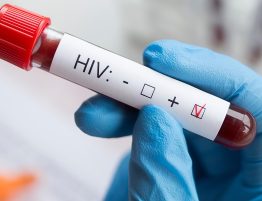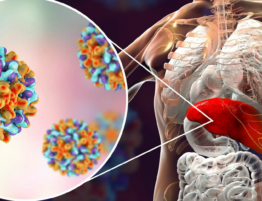
Preventive vaccinations are carried out in order to prevent, reduce the level and eliminate infectious diseases.
Routine preventive vaccinations are carried out at certain times in a person’s life, regardless of the epidemic situation, to create a specific immunity of the human body (immunity) to the corresponding infectious diseases.
In addition to routine preventive vaccinations, the Republic of Belarus carries out vaccinations for epidemic indications:
- against rabies
- brucellosis
- chickenpox
- viral hepatitis A,
- viral hepatitis B
- diphtheria
- yellow fever
- tick-borne encephalitis,
- whooping cough
- measles
- rubella
- leptospirosis,
- poliomyelitis
- anthrax
- tularemia
- plague
- mumps, etc.
Preventive vaccinations are carried out strictly in healthcare organizations. Information about preventive vaccination is entered into the patient’s medical record.
In accordance with Article 44 of the Law of the Republic of Belarus “On Health Care”, a necessary condition for carrying out preventive vaccinations is the prior consent of the patient (for a minor patient – his parent or legal representative). The patient should be familiar with the predicted results and possible risks.
Consent for preventive vaccinations is given orally, since vaccination carried out intramuscularly, subcutaneously or intradermally is included in the list of simple medical interventions (Resolution of the Ministry of Health of the Republic of Belarus dated May 31, 2011 N 49 “On establishing a list of simple medical interventions”).
In accordance with Article 45 of the Law of the Republic of Belarus “On Health Care”, the patient has the right to refuse preventive vaccinations. The refusal is recorded in the medical documentation and signed by the patient and the attending physician.
Preventive vaccinations are carried out by medical workers trained in vaccination techniques, as well as in providing first aid in the event of post-vaccination complications and reactions. If there is a general practitioner (pediatrician), preventive vaccinations can be carried out in agreement with the territorial center of hygiene and epidemiology in specially equipped rooms at the place of work, study, medical and obstetric stations, if it is possible to fully comply with the rules of asepsis.
Carrying out preventive vaccinations at feldsher-midwife stations and health centers by paramedical personnel without a medical examination is prohibited.
Vaccinations against tuberculosis and tuberculin diagnostics are carried out by specially trained nursing personnel who have a certificate of admission from the anti-tuberculosis dispensary to carry out immunization using BCG (BCG-M) and performing the Mantoux test.
Procedure for vaccinations
To ensure timely implementation of preventive vaccinations, the medical worker of the pediatric (therapeutic) department orally or in writing invites to the medical institution the persons subject to vaccinations (parents of children or persons replacing them).
In a children’s educational institution, he informs in advance and obtains the consent of parents to carry out professional vaccinations for their children, makes a record of oral consent to vaccination.
The doctor must inform the patient about the infectious disease against which the vaccination will be carried out, the properties of the vaccine preparation, possible post-vaccination reactions and actions if they occur.
The pediatrician (therapist) gives permission for vaccination in writing. For this purpose and to exclude an acute disease, immediately before vaccination, the doctor conducts a medical examination of the patient, including: thermometry, measurement of respiratory rate, pulse, a survey for complaints, an objective examination of organs and systems. In this case, anamnestic data should be taken into account (previous diseases, reactions to vaccinations, the presence of allergic reactions to medications, foods). In order to prevent post-vaccination reactions and complications in persons with abnormal health conditions, it is necessary to use pre-vaccination drug preparation.
A record of the vaccination performed is made in the medical documentation. The record is certified by the person who vaccinated.
Monitoring of vaccinated persons
In a health care organization, after vaccination, in order to provide medical care in the event of immediate allergic reactions, medical supervision of the vaccinated person should be provided for the first 30 minutes (unless the instructions for the drug provide for a different time).
Medical contraindications to vaccinations
Medical contraindications to vaccination can be established as temporary (up to one month) – in connection with an acute respiratory infection, in the presence of fever, or long-term (from 1 to 3 months) – in the presence of exacerbation of some chronic diseases and permanent (1 year or more) – due to contraindications established in the instructions for use of the vaccine. The decision to establish or cancel a temporary medical contraindication is made by a pediatrician (therapist). The decision to establish, extend or cancel a long-term and permanent medical contraindication is made by the immunological commission, which is approved by order of the chief physician of the healthcare organization.
A (permanent) contraindication to all vaccines is a complication following the administration of a previous dose of the drug (anaphylactic shock that developed within 24 hours after vaccination, immediate allergic reactions, encephalitis or encephalopathy, afebrile convulsions).
Acute infectious and non-infectious diseases, exacerbation of chronic diseases are temporary contraindications for vaccinations. Routine vaccinations are carried out after the disappearance of acute manifestations of the disease and the achievement of complete or maximum possible remission, including during maintenance treatment (except immunosuppressive).
Vaccinations for epidemic indications can be carried out against the background of a mild acute respiratory viral infection, acute respiratory infection, in the absence of remission against the background of active therapy, according to the decision of a pediatrician (therapist). The basis for making a decision is to compare the risk of an infectious disease and its complications, exacerbation of a chronic disease with the risk of complications after vaccination.
Children who are not vaccinated on time due to medical contraindications are vaccinated according to an individual schedule according to the recommendations of a pediatrician or other specialists.
If an infectious disease occurs in an organized group or home, the possibility of immunizing contact persons is determined by an epidemiologist together with a pediatrician.
Adverse reactions and serious adverse reactions to vaccines
An adverse reaction is an unexpected negative reaction of the human body associated with the medical use of a medicinal product at the dose specified in the instructions for use and (or) the package insert.
An unexpected adverse reaction is an adverse reaction, the nature or severity of which is not consistent with the available information about the drug specified in the instructions for medical use and (or) the package insert or clinical trial program (protocol).
Serious adverse reactions are adverse reactions that, regardless of the dose of the drug taken, lead to death, or pose a threat to life, or require medical care in a hospital setting, or lead to persistent or severe limitations in viability (disability), to a congenital anomaly ( developmental defect), or require medical intervention to prevent the development of these conditions. Serious adverse reactions are usually associated with:
- with violation of medical contraindications;
- with violation of vaccination technique;
- with the quality of vaccines;
- with individual patient reaction.
The main diseases to be registered and investigated in the post-vaccination period are:
- anaphylactic shock, severe generalized allergic reactions (recurrent angioedema – Quincke’s edema, Steven-Johnson syndrome, Lyell’s syndrome, etc.);
- serum sickness syndrome;
- encephalitis, or other central nervous system lesions with generalized or local manifestations (encephalopathy, serous meningitis, polyneuritis);
- residual convulsive conditions: afebrile convulsions (appearing after vaccination at a temperature below 38.5°C and absent before vaccination), repeated during the first 12 months after vaccination;
- vaccine-associated polio;
- myocarditis, nephritis, thrombocytopenic purpura, agranulocytosis, hypoplastic anemia, collagenosis, abscess at the injection site, sudden death, other cases of death with a temporary connection with the vaccine;
- lymphadenitis, incl. regional, keloid scar, osteitis and other generalized forms of the disease.
Making immunizations safe
In 1999, WHO established the Global Advisory Committee on Vaccine Safety (GACVS) to provide rapid, effective and evidence-based responses to vaccine safety issues of global concern. Thus, experts from the State Committee for Veterinary Medicine have refuted the connection between vaccination against whooping cough and the development of encephalitis, sudden death syndrome with the DTP vaccine, autism and the vaccine against measles, mumps and rubella, multiple sclerosis and vaccination against hepatitis B.
In the Republic of Belarus, the vaccine before use:
- passes state registration with laboratory tests;
- each batch of vaccines entering the territory of the Republic of Belarus undergoes incoming laboratory control;
- monitoring of compliance with the “cold chain” during the transportation and use of vaccines;
- a monitoring system for serious adverse reactions has been in place; since 2008, monitoring of adverse reactions and serious adverse reactions has been carried out.
Serious adverse reactions are extremely rare: throughout the history of vaccination in the Republic of Belarus, isolated cases have been recorded. Thus, in the Republic of Belarus in 2014, the incidence of complications was 0.001% of the number of preventive vaccinations performed (mainly after BCG immunization). No fatal cases associated with vaccination have been recorded in the republic over the past 30 years.
The investigation into the causes of serious adverse reactions is carried out by a commission appointed by the health department of the regional executive committee or the health care committee of the Minsk city executive committee. Each case of a condition (disease) that developed in the post-vaccination period and is interpreted as a serious adverse reaction requires careful differential diagnosis with both infectious and non-infectious diseases.
Successes and achievements of immunoprophylaxis in the 21st century
Thanks to effective vaccination programs for children and adults, there has been a significant decrease in many infectious diseases in our country:
- there are no cases of polio, which previously led to the development of deformities and disabilities;
- the incidence of rubella has decreased by 43,000 times (from 43,000 cases in 1997 to 1 case in 2014);
- the incidence of measles decreased by more than 1,000 times (in the pre-vaccination period (before 1967), about 70,000 cases were registered per year, in 2014 – 64 cases), the incidence of measles was due to 5 imported cases from countries where the spread is registered measles: Russian Federation, Poland, Georgia, Ukraine and Israel (of the reported measles cases, 59 were associated with imported ones);
- incidence of diphtheria – in the pre-vaccination period (before 1957) 14,000 cases were registered, since 2012 there have been no cases;
- incidence of viral hepatitis B – 14 times (from 1266 cases in 1998 to 93 in 2014);
- incidence of tetanus – isolated sporadic cases of tetanus were recorded, there have been no cases since 2011.







